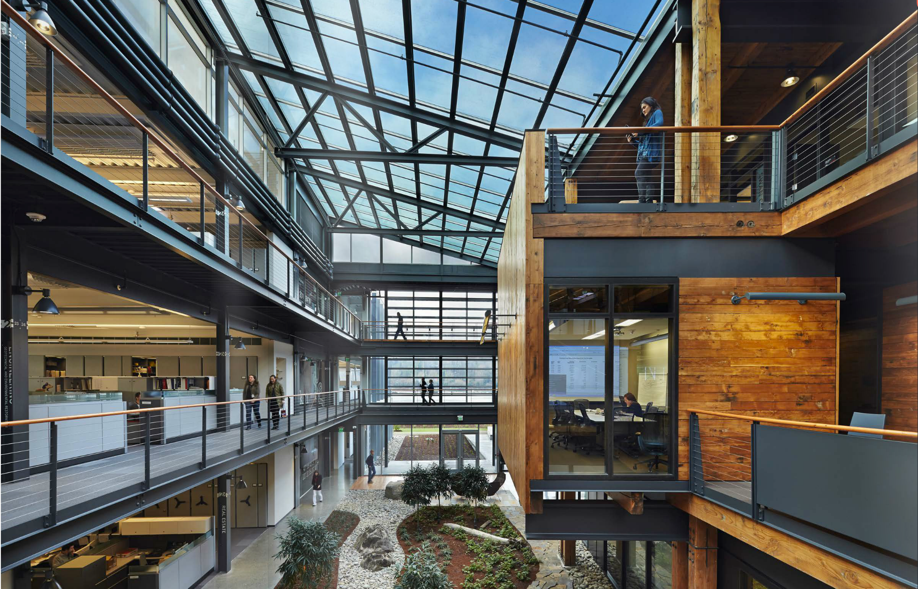The International WELL Building Institute (IWBI) was well on its way to bringing the final version of the WELL Building Standard version 2 to vote before its governance council. Then COVID-19 hit.
“The very same day [version 2 was going to the council] was when we shut our office down in New York City and sent everyone into a remote work environment,’ says Rachel Gutter, President of the IWBI.
When that happened, the organization decided to change course. It regrouped and convened a Task Force on COVID-19 and other Respiratory Infections: Prevention and Preparedness, Resilience and Recovery. This group will help define the critical role buildings, organizations and communities play in reducing the health burden from coronavirus and other infectious diseases.
IMBI plans to gather facilities managers, physicians, indoor air quality researchers, municipal facilities to tackle some difficult questions around buildings and airborne disease.
“We’re particularly interested in places where researchers and science haven’t fully answered questions,” Gutter says. “A good example of that is antimicrobial surfaces. There’s a lot that we still don’t know about antimicrobial surfaces and their efficacy when it comes to COVID-19. But there are also the long-term ramifications of antimicrobial treatments. This is a place where we’re looking forward to a robust dialogue within the community so that we can prescribe best practices and evidence-based interventions.”
At the forefront of many discussions about COVID-19 has been ventilation. “It’s something that, as far as COVID-19 is concerned, is ever-evolving,” Gutter says. “We’re convening some of the best experts in the world to advise about whether expectations for things like ventilation and filtration need to be adjusted,” Gutter says.
Open office plans are another tricky proposition in the age of COVID-19. Some people wonder if they could hasten the spread of airborne viruses. “I think another big question that’s coming up is around the future of open-plan offices and things like desk sharing or hoteling,” Gutter says. “Those are very large trends in the workplace.”
Proper cleaning, of course, can limit the spread of bacteria and viruses. That’s another topic IMBI plans to tackle.
“We need to reconsider those practices with COVID-19,” Gutter says. “There are a lot of questions coming up around cleaning and protocols, even down to the question of using hand dryers or hand towels or paper towels.”
As it tackles these issues, IWBI plans to offer guidance for foundations, municipalities, congressional offices and national governments. One place that it could provide information is around low-income communities, which are disproportionately impacted by COVID-19. “That’s a place where we can provide some direction about the types of interventions that can be matched to the communities that need it the most for the maximum impact,” Gutter says.
IWBI even sees an opportunity to reach out to the investment community. “We’d like to commence a conversation with the investment community about what investing for health looks like and how we factor elements of preparedness around supporting human health as a material consideration for all future investments,” Gutter says.

